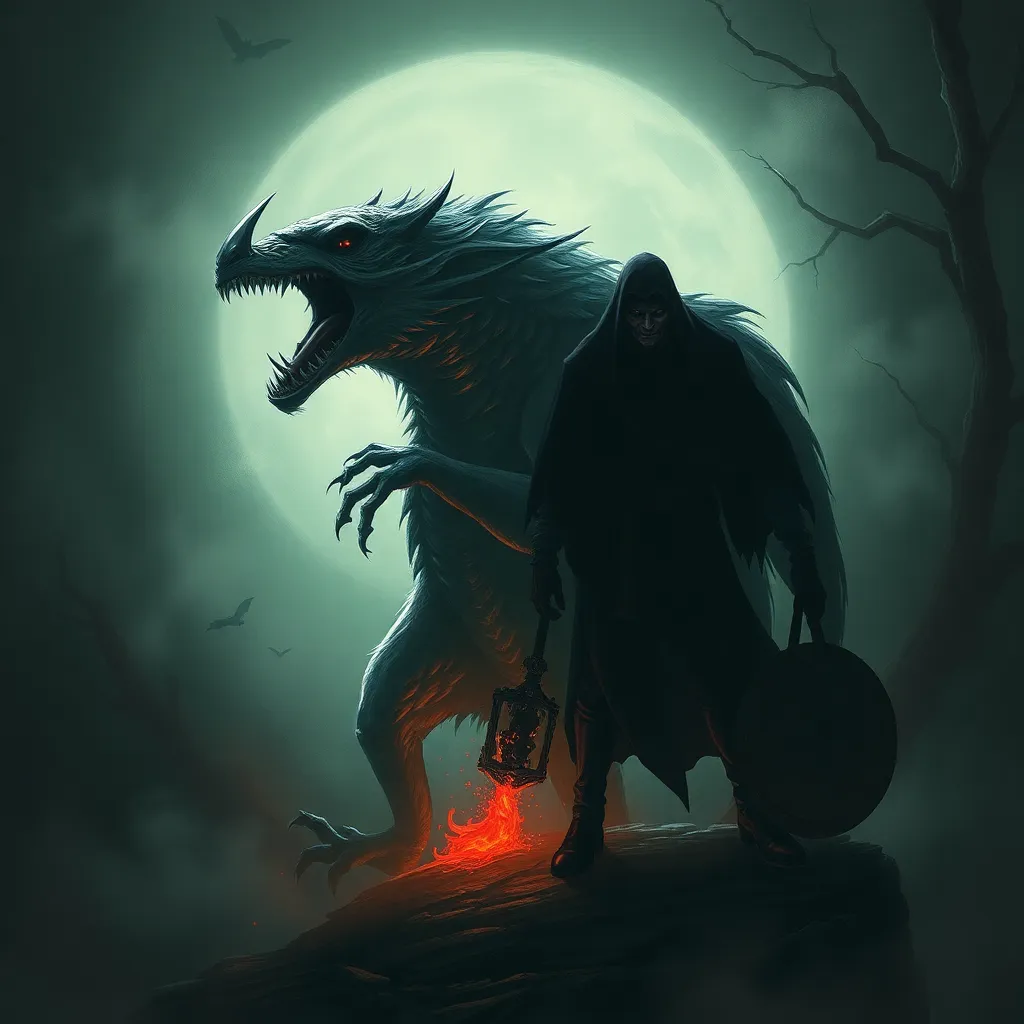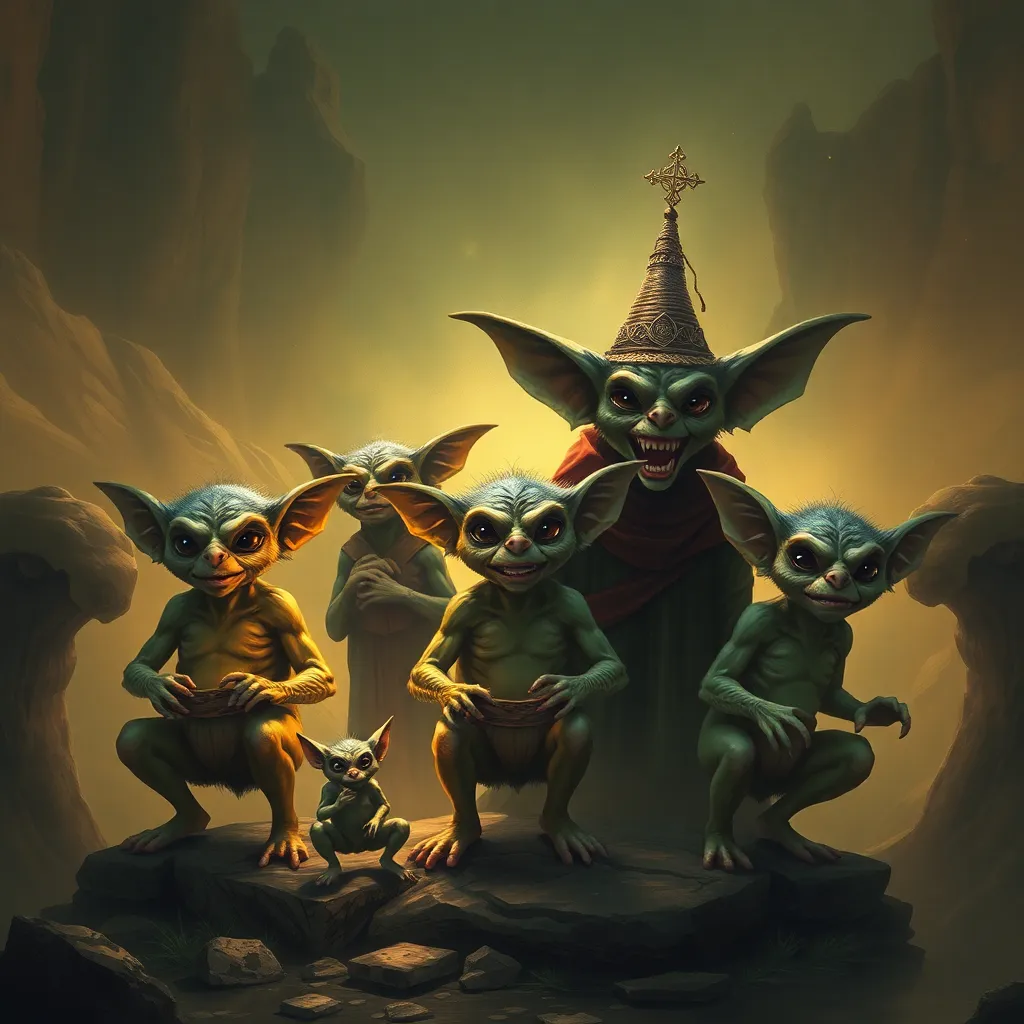The Oni’s Prophecy: Exploring the Role of Oni in Korean Divination and Fortune Telling
I. Introduction
The term ‘Oni’ refers to a type of demon or ogre found in various East Asian folklores, particularly in Japan and Korea. These supernatural beings have a rich cultural significance, often embodying both malevolence and protective qualities. In Korean culture, Oni are not just fearsome figures; they also play a crucial role in divination and fortune-telling practices.
Divination and fortune-telling have been integral to Korean spirituality for centuries, serving as methods for individuals to seek guidance and insight from the spiritual realm. This article aims to delve into how Oni influence these practices, examining their historical context, characteristics, and the various methods used in divination involving these enigmatic beings.
II. Historical Context of Oni in Korean Culture
The origins of Oni mythology in Korea can be traced back to ancient shamanistic beliefs, where spirits and deities were revered and invoked during rituals. Over time, the representation of Oni evolved, influenced by cultural exchanges with neighboring countries such as Japan and China.
In Korean folklore, Oni are often depicted as malicious beings that can bring misfortune or disaster. However, they also possess protective attributes, serving as guardians against evil spirits. This duality is reflected in various tales and literature, where Oni characters appear in both antagonistic and benevolent roles.
As Korea interacted with its neighbors, particularly during the periods of invasions and trade, the concept of Oni absorbed elements from different cultural narratives. This has led to a unique interpretation of Oni within Korean mythology, distinct from their Japanese counterparts.
III. The Concept of Prophecy in Korean Divination
Prophecy holds a significant place in Korean spirituality, often seen as a means of communicating with the divine. Traditional beliefs assert that the future is not fixed, and through divination, individuals can gain insights to navigate their paths effectively.
Korean divination methods encompass a variety of practices, including:
- Fortune-telling through the casting of divination sticks (Sujeong)
- Reading of the I Ching (Yijing)
- Shamanistic rituals involving spirit possessions and trance states
Supernatural beings, including Oni, are often invoked during these practices, believed to offer guidance and warnings about impending events. The presence of Oni in these practices adds an additional layer of complexity, as their interpretations can vary widely based on individual beliefs and cultural contexts.
IV. Oni as Divinatory Figures
In the context of divination, Oni are characterized by their unique attributes and symbolism. They are often depicted as powerful entities capable of influencing human fate. Key characteristics of Oni include:
- Physical strength and ferocity
- Wisdom and ancient knowledge
- Ambiguous moral status, representing both good and evil
The symbolism associated with Oni in fortune-telling often revolves around transformation, change, and protection. For instance, an appearance of an Oni in a divinatory reading might indicate upcoming challenges that require strength and resilience to overcome.
Case studies of Oni appearances in divinatory practices reveal their multifaceted roles. In some instances, Oni may serve as protectors, warning individuals against potential dangers, while in others, they may symbolize internal struggles or conflicts that need resolution.
V. Methods of Divination Involving Oni
Various rituals and ceremonies involve invoking Oni for guidance and insight. These practices often reflect a blend of traditional beliefs and contemporary adaptations. Common methods include:
- Ritual offerings to appease and seek favor from Oni
- Chanting or reciting Oni-related prayers during divination sessions
- Using symbolic objects associated with Oni, such as masks or talismans
Interpreting messages from Oni often involves intuitive reading and personal reflection. Practitioners may analyze the context of the reading, the emotions involved, and the specific characteristics of the Oni that appeared. Comparisons with other supernatural beings in Korean divination, such as spirits of ancestors or nature deities, reveal both similarities and unique aspects of Oni as divinatory figures.
VI. Modern Interpretations and Adaptations
In contemporary society, there is a resurgence of interest in traditional practices, including those involving Oni. Many practitioners blend these age-old methods with modern divination techniques, creating a unique spiritual experience. This fusion often includes:
- Utilizing technology for virtual readings and consultations
- Incorporating elements of popular culture, such as anime and films featuring Oni
- Workshops and community gatherings focused on traditional divination practices
Personal anecdotes from practitioners highlight the evolving nature of these practices. Many report transformative experiences when engaging with Oni during divination, suggesting a deep connection to their cultural roots and spiritual exploration.
VII. Criticism and Skepticism
Despite the cultural significance of Oni in divination, there are skeptics who question the validity of these practices. Critics often argue that:
- Divination lacks scientific basis and is merely a reflection of psychological phenomena
- Belief in supernatural beings is a form of cognitive bias
- Such practices may exploit vulnerable individuals seeking answers
Discussions surrounding the psychological aspects of belief in divination reveal a complex interplay between tradition, faith, and modernity. While some individuals find solace and insight through these practices, others call for a more critical examination of their efficacy and impact.
VIII. Conclusion
In summary, the role of Oni in Korean divination and fortune-telling is multifaceted, reflecting a rich tapestry of cultural beliefs and spiritual practices. The exploration of Oni highlights the significance of preserving these traditions, as they offer valuable insights into the intersection of folklore and spirituality in Korea.
As interest in these practices continues to grow, there is a call for further studies on the relationships between supernatural beings like Oni and the evolving landscape of divination. Understanding these connections can deepen our appreciation for the cultural heritage and spiritual diversity of Korea.



